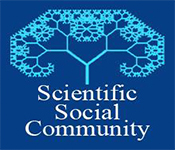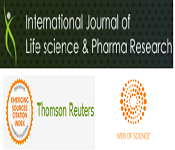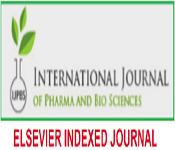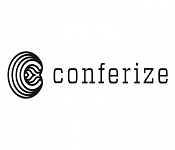Theme: Challenges & Innovating Solutions in the field of Genetics & Microbiology
Molecular Microbiology 2018
Details of Molecular Microbiology 2018 in USA :
International Conference on Microbial Genetics and Molecular Microbiology is scheduled to be held during December 03-04, 2018 at Chicago, Illinois, USA. This Molecular Microbiology 2018 anticipates more than 200 participants around the globe with thought provoking Keynote lectures, Oral talks and Poster presentations, Symposia, Workshops, Exhibitions and Career development programs. The attending delegates include Editorial Board Members of related Conference Series LLC Ltd Journals.
| Conference Name | Place | Date |
| Molecular Microbiology-2018 | Chicago,Illinois,USA | Dec 3-4,2018 |
This is an excellent opportunity for the delegates from Universities and Institutes to interact with the world class Scientists. The intending participants can confirm their participation by registering at Molecular Microbiology 2018 along with your colleagues.
Molecular Microbiology 2018 is one of the well-established conferences among Microbiology Conferences organized by Conference Series LLC Ltd
Conference Series LLC Ltd Organizes 3000+ Global Events Every Year across USA, Europe & Asia with support from 1000 more scientific societies and Publishes 700+ Open access journals which contains over 100000 eminent personalities, reputed scientists as editorial board and organizing committee members. The Conference Series LLC Ltd website will provide you list and details about the conferences organize worldwide.
Why to Attend???
Molecular Microbiology 2018 Conference is a multidisciplinary program with broad participation with members from around the globe focused on learning about microbiology research and its advances. This is your best opportunity to reach the largest assemblage of participants from microbiology community that is from academia, microbiology entities, medical groups, labs, related associations, societies and also from government agencies, pharmaceutical, biomedical and medical device industries.. This conference conduct presentations, distribute information, meet with current and potential scientists, make a splash with new clinical research developments, and receive name recognition at this 2-days event. World renowned speakers and the most recent techniques, developments, the newest updates in Molecular Microbiology are hallmarks of this conference.
Who Should Attend and Who You’ll Meet
Directors/Senior Directors/Executive Directors and Vice Presidents/Senior Vice Presidents/Executive Vice Presidents and Heads/Leaders/Partners of
- Microbiology Researchers/ Clinical Researchers
- Pathologists and Immunologists
- Research Scientists/ Academicians
- Pharma/Biotech and Medical Device industries
- Hospitals, Labs & Associations
- Molecular biologists
- Cellular Microbiologists
- Computational biologists
- Environmental specialists
Medical Directors, Principal Investigators, Methodologists, and other clinical research professionals along with Academicians: University Faculties like Directors, Senior Professors/Assistant Professors/ Associate Professor, Research Scholars, investors, scientists who are related to Molecular Microbiology. Pathologists, Doctors, Director and Managers from business organizations.
Benefits of attending Molecular Microbiology 2018 ?
- An opportunity to meet the mentors across the world face-to-face.
- Sharing ideas, challenges and plan something interesting for future
- B2B Meetings.
- To meet the experts in the field of Molecular Microbiology.
- To share the knowledge with doctors and Scientists.
- To gain advance knowledge in Molecular Microbiology.
- To meet investors from different sector of Healthcare.
- To develop collaborations between Academic and Business.
- Thought provoking talks by Doctors,Professors,PhD's and Young Researchers.
Molecular Microbiology 2018 ardently encourages patrons, benefactors, pioneers, and exhibitors from across the world to convene you all to attend and register for the “International Conference on Microbial Genetics and Molecular Microbiology (Molecular Microbiology 2018) which is going to be venerated from December 03-04, 2018 at Chicago, Illinois, USA.
The organizing committee is endowing for a rather stimulating and illuminative conference programs subsuming Plenary Lectures, Symposia, Workshops on a myriad of topics, Poster Presentations and an assortment of programs for participants from over the globe. We invite you to accompany us at the Molecular Microbiology 2018 where you are assured to have a substantially worthwhile experience with ecumenical scholars.
Microbial Genetics is study of microorganisms heredity and variable characteristics. Heredity keeps microbial genetic traits relatively stable to ensure the reproduction of the species, while variations produce changes in the microorganisms that are useful for microbial survival and evolution and ultimately lead to the generation of new species.
One of the most important properties of DNA is that it forms its additional identical copies. The process of forming its replica copy is called replication. Replication is the basis of evolution of all morphologically complex forms of life.
Gene expression is the process by which the genetic code, the nucleotide sequence of a gene is used to direct protein synthesis and produce the structures of the cell. Gene regulation refers to the mechanisms that act to induce or repress the expression of a gene. These include structural and chemical changes to the genetic material, binding of proteins to specific DNA elements to regulate transcription, or mechanisms that modulate translation of mRNA.
The genetic code is the code our body uses to convert the instructions contained in our DNA the essential materials of life. It is typically discussed using the “codons” found in mRNA, as mRNA is the messenger that carries information from the DNA to the site of protein synthesis. A mutation is a change in a genetic sequence.
A genetic disorder is a disease caused in whole or in part by a change in the DNA sequence away from the normal sequence. Genetic disorders can be caused by a mutation in one gene (monogenic disorder), by mutations in multiple genes (multifactorial inheritance disorder), by a combination of gene mutations and environmental factors, or by damage to chromosomes (changes in the number or structure of entire chromosomes, the structures that carry genes).
Genetic Syndromes & Gene Therapy:
Gene therapy targets the faulty genes responsible for genetic diseases. Inheriting a faulty (mutated) gene can directly cause a wide range of disorders such as cystic fibrosis and hemophilia. It can also cause susceptibility to some cancers. Gene therapy can be used to replace a faulty gene with a healthy version or to introduce a new gene that can cure a condition or modify its effects.
Human Genetics & Genetic Diseases:
Human genetics is study of the inheritance of characteristics by children from parents. Inheritance in humans does not differ in any fundamental way from that in other organisms. Human genetic diseases are any of the diseases and disorders that are caused by mutations in one or more genes.
Genetic engineering is the artificial manipulation, modification, and recombination of DNA or other nucleic acid molecules in order to modify an organism or population of organisms.
Molecular Microbiology & Diagnostics:
Molecular microbiology is the branch of microbiology devoted to the study of the molecular basis of the physiological processes that occur in microorganisms. Molecular diagnostics is referred to as the detection of genomic variants, aiming to facilitate detection, diagnosis, sub classification, prognosis, and monitoring response to therapy.
Molecular Cloning & Genetic Recombination:
Cloning is the process of generating a genetically identical copy of a cell or an organism. Genetic recombination occurs when genetic material is exchanged between two different chromosomes or between different regions within the same chromosome.
Cellular & Environmental Microbiology:
Cellular microbiology is the scientific study of the functions and properties of microbial cells. This discipline combines techniques and approaches of classic cell biology and microbiology. Environmental microbiology is the scientific study of microorganisms in the environment. This discipline includes air microbiology, soil microbiology and water microbiology.
Cell biology is the discipline of biological sciences that studies the structure, physiology, growth, reproduction and death of cells. Research in cell biology uses microscopic and molecular tools and examines all cell types, from unicellular organisms such as protozoa to the specialized cells that constitute multicellular organisms.
Most cells in a plant or animal are specialized to carry out one or more specific functions. Many biological processes require various cells to work together and to coordinate their activities. To make this possible, cells have to communicate with each other, which is accomplished by a process called cell signaling. Cell signaling makes it possible for cells to respond in an appropriate manner to a specific environmental stimulus.
Cancer begins in your cells. Normally, our body forms new cells as we need them, replacing old cells that die. The growth of extra cells can form a mass called a tumor. Tumors can be benign or malignant. Benign tumors aren't cancer while malignant ones are. Cells from malignant tumors can invade nearby tissues. They can also break away and spread to other parts of the body.
Stem cells are undifferentiated biological cells that can differentiate into specialized cells and can divide to produce more stem cells. They are found in multicellular organisms. In mammals, there are two broad types of stem cells: embryonic stem cells, which are isolated from the inner cell mass of blastocysts, and adult stem cells, which are found in various tissues.
Metabolism is the dynamic balance between catabolism reaction and anabolism reaction that provide the cell with energy or building materials & those to utilize them.
The Global Molecular Microbiology Market report is a detailed assessment of the Molecular Microbiology Market, which enables market drivers, recent technologies, product Specification, Product cost structure, Manufacturing process, etc. This report provides strategic recommendations consulted by the industrial experts including market forecasts, profit, supply, Proportion of Manufacturing Cost Structure, Raw Materials, Labor Cost, Manufacturing Expenses., latest market trends, demands and much more.
With the slowdown in world economic growth, the Molecular Microbiology industry has also suffered a certain impact, but still maintained a relatively optimistic growth, the past four years, Molecular Microbiology market size to maintain the average annual growth rate of 8.17% from 3200 million $ in 2013 to 4050 million $ in 2016, Industry analysts believe that in the next few years, Molecular Microbiology market size will be further expanded, we expect that by 2021 , The market size of the Molecular Microbiology will reach 6530 million $. This Report covers the manufacturers’ data, including: shipment, price, revenue, gross profit, interview record, business distribution etc., these data help the consumer know about the competitors better. This report also covers all the regions and countries of the world, which shows a regional development status, including market size, volume and value, as well as price data. The region including: United States, Canada, South America, China, Japan, India, Korea, Germany, UK, France, Italy, Europe as a whole, Middle East Africa, GCC etc. region coverage is very comprehensive, also, the region can be changed as every client’s special requirement, only Europe, only North America, only Asia, only single China or only single United States, single country or single region report can also published. As well as the region, all the segment data can be customized, type segment, industry segment, channel segment can be changed as the client’s special requirement. This report also provide market forecast data, according the history of this industry, the future of the industry faces what situation, growth or decline, the price trend, market size trend, segment market trend will also be provided in the forecast chapter. The report analyze the manufacturing cost of the product, which is very important for the manufacturer and competitors, raw material price, manufacturing process cost, labor cost, energy cost, all these kinds of cost will affect the market trend, to know the manufacturing cost better, to know the market better. Besides, the report also covers segment data, including: type segment, industry segment, channel segment etc. cover different segment market size, both volume and value. Also cover different industries clients’ information, which is very important for the manufacturers.
Global Automated Microbiology Market: Overview
Automated microbiology is an advanced technique in the field of microbiology that enables the delivery of more accurate and quicker results. The advent of automation in microbiology is likely to boost productivity, reliability, and efficiency in molecular testing. The expertise of professionals that was previously engaged in repetitive tasks can now be directed in more important areas.
Based on end users, the global market for automated microbiology can be segmented into biotechnology industries and clinical laboratories. By diagnostic technologies, detection techniques, DNA sequencing, monoclonal antibodies, DNA and RNA probe technology, and immunoassays are some of the major segments. The detection techniques can be further classified into non-isotopic and radioactive methods. The DNA and RNA probe technology segment includes amplification methods and labeling techniques.
The report offers a succinct overview of the overall market landscape. The key challenges, growth drivers, recent developments, and growth opportunities in the global market for automated microbiology have been analyzed in the report. The Porter’s Five Force analysis is leveraged to assess the level of competition among the players. The market size, value chain analysis, market attractiveness, and technological advancements pertaining to the market have also been studied.
Global Automated Microbiology Market: Trends and Opportunities
The increasing demand for laboratory testing and the dearth of labor in the field of lab testing have been driving the growth of the global market for automated microbiology. The switch to liquid-based microbiology is one of the most influential technological innovations in the area of microbiology. Additionally, the rising number of patients who receive indwelling devices, which might lead to infection, has triggered the need for laboratory services. The aging workforce in laboratory testing, greater demand for high quality laboratory services, and increasing necessity of timely results will bring about the expansion of the global market for automated microbiology over the forthcoming period.
On the other hand, the hefty price tags and large footprints of these systems might hinder the growth of the market. The inadequate number of skilled professionals to handle these systems is another key restraint faced by the global market for automated microbiology. However, the emergence of new technologies such as liquid transport media, mass spectrometry, automated identification and susceptibility systems, and molecular techniques might lead to greater standardization of this technology, ensuring the market’s growth.
New systems are increasingly being developed by leading companies to amplify their profit in the automated microbiology market. For instance, in April 2017, bioMérieux, a leading company offering in vitro diagnostics solutions, announced that it received the approval of the U.S. Food and Drug Administration (FDA) for its innovative, fully automated blood culture system. With BacT/ALERT® VIRTUO™, personnel of any skill level can handle the loading of bottles on the instrument, offering reduced hands-on time and quick incubation. The new system also features superior optics, high thermal stability, and powerful proprietary algorithms.
Global Automated Microbiology Market: Regional Outlook
By geography, the global market for automated microbiology has been segmented into Asia Pacific, Europe, North America, and the Rest of the World (RoW). North America is likely to emerge at the fore, driven by increasing incidence of diseases and disorders leading to a greater need for laboratory tests. The U.S. and Canada are likely to represent a significant portion of the market in North America. Europe will also register steady growth. The growing geriatric population and the high disposable incomes of the people in Europe and North America have been aiding the growth of the automated microbiology market in these regions.
Emerging economies such as Africa, Latin America, and Asia Pacific are slated for substantial growth during the forecast period. With the growing healthcare expenditures, supportive government initiatives, advancement of technology, and a stupendous patient pool, the automated microbiology market in these regions is likely to reach new heights. In October 2015, for instance, the first state-of-the-art automated microbiology laboratory was set up in Durban, Africa. This development brought the region one step closer to revolutionized patient diagnosis.
Key segments of the Global Automated Microbiology Market
-
Global Automated Microbiology Market, by Diagnostic Technologies
- DNA Sequencing
-
DNA and RNA Probe Technology
- Labeling Techniques
- Amplification Methods
- Others
-
Detection Techniques
- Radioactive Methods
- Non-Isotopic Methods
- Monoclonal Antibodies
- Immunoassays
- Others
-
Global Automated Microbiology Market, by End User
- Clinical Laboratories
- Biotechnology Industries
- Others
Major regions analyzed under this research report are:
- Europe
- North America
- Asia Pacific
- Rest of the World
Conference Highlights
- Cancer & Stem Cells
- Cell Biology
- Cell signaling pathways
- Microbial Genetics
- DNA replication & mechanism
- Gene Expression & Regulation
- Genetic Code & Mutations
- Genetic Disorders
- Genetic Syndrome & Gene Therapy
- Human Genetics & Genetic Diseases
- Genetic Engineering
- Molecular Microbiology & Diagnostics
- Molecular Cloning & Genetic Recombinations
- Cellular & Environmental Microbiology
- Microbial Metabolism
To share your views and research, please click here to register for the Conference.
To Collaborate Scientific Professionals around the World
| Conference Date | December 03-04, 2018 | ||
| Sponsors & Exhibitors |
|
||
| Speaker Opportunity Closed | |||
| Poster Opportunity Closed | Click Here to View | ||
Useful Links
Special Issues
All accepted abstracts will be published in respective Our International Journals.
- Journal of Proteomics & Bioinformatics
- Journal of Molecular and Genetic Medicine
- Journal of Genetic Syndromes & Gene Therapy
Abstracts will be provided with Digital Object Identifier by















